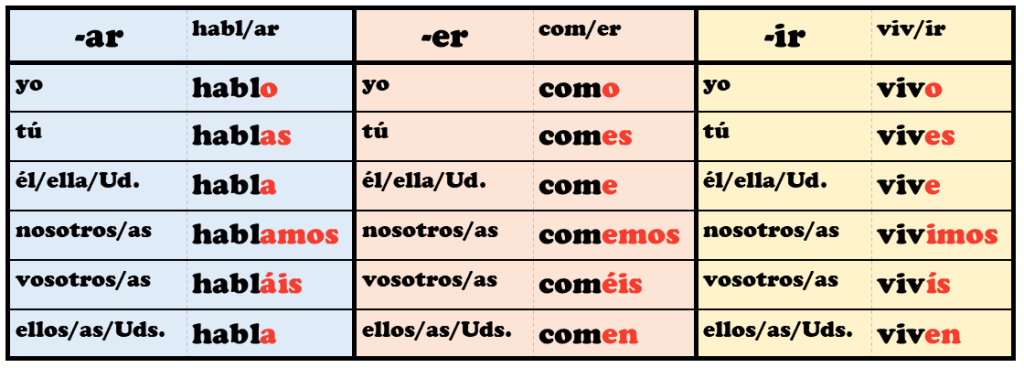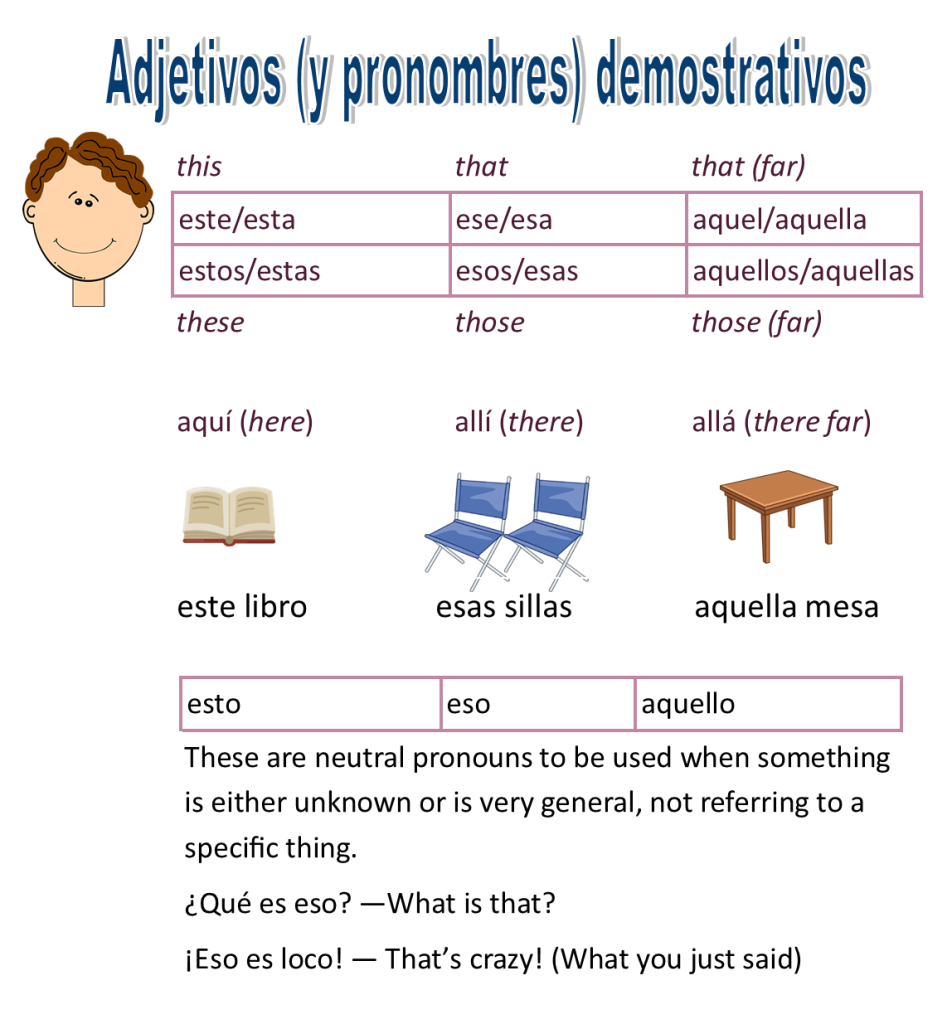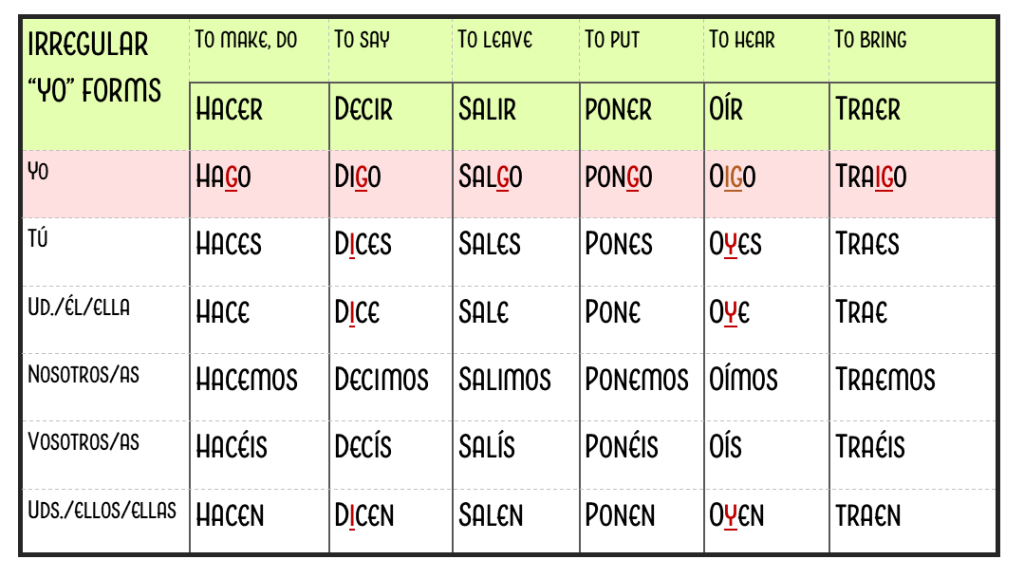Semana 6 (El presente, demostrativos, el tiempo y “yo” irregulares)
El presente regular

| REGULAR -AR VERBS | hablar | to speak | REGULAR -ER VERBS | ||
| bailar | to dance | llegar | to arrive | aprender | to learn |
| buscar | to look for | llevar | to carry, to wear | beber | to drink |
| caminar | to walk | mirar | to watch | comer | to eat |
| cantar | to sing | mandar | to send, to command | comprender | to understand |
| cenar | to have dinner | necesitar | to need | correr | to run |
| comprar | to buy | practicar | to practice | creer | to believe |
| contestar | to answer | preguntar | to ask | deber | to should/ought |
| conversar | to chat/converse | preparar | to prepare | leer | to read |
| desayunar | to have breakfast | regresar | to return | REGULAR -IR VERBS | |
| descansar | to rest | terminar | to finish | abrir | to open |
| desear | to desire/want | tomar | to take, to drink | asistir | to attend |
| dibujar | to draw | trabajar | to work | compartir | to share |
| enseñar | to teach | tratar (de) | to try | describir | to describe |
| escuchar | to listen | usar | to use | escribir | to write |
| esperar | to wait, to hope | visitar | to visit | partir | to divide, leave |
| estudiar | to study | viajar | to travel | recibir | to receive |
| explicar | to explain | tocar | to touch, play (an instrument) | vivir | to live |
Demostrativos are the words this, these, that, those. Like other adjectives (and pronouns) they agree in gender and number. In Spanish we have a third set, meaning "that" and "those," but even further away in time or space. These adjectives go in front of the noun they modify:
- Esta lección es sobre demostrativos. This lesson is on demonstratives.
When the word completely replaces the noun, it becomes a pronoun:
- Este restaurante es mejor que ese. This restaurant is better than that (one).

¿Adivina qué?
¿RECUERDAS LAS ESTACIONES?
- primavera 21-marzo a 21-junio
- verano 21-junio a 21-septiembre
- otoño 21-septiembre a 21-diciembre
- invierno 21-diciembre a 21-marzo
You've seen that tener has an irregular yo form→tengo. Here are some other common verbs that also have an irregular yo form. *Note that decir and oír have other irregularities as well.

¿Dónde trabajas?
¿Qué vas a hacer este fin de semana?
¿Qué hay en esa mochila?
¿Cuándo necesitas ir a clase?
¿Dónde esperas trabajar?
¿Adónde vas a viajar este año?
¿Dónde vives?
¿A qué hora asistes a clase?
¿Cuántas horas debes estudiar esta semana?
¿Qué aprendes en la clase de español?
¿A qué hora cenas?
¿Qué música escuchas?
¿Qué te gusta tomar cuando tienes sed?
¿Qué ropa llevas cuando tienes frío?
¿Cuándo visitas a tu familia?
¿Tocas un instrumento?
¿Preparas comida en casa?
¿Dónde compras ropa?
¿A qué hora te gusta desayunar?

